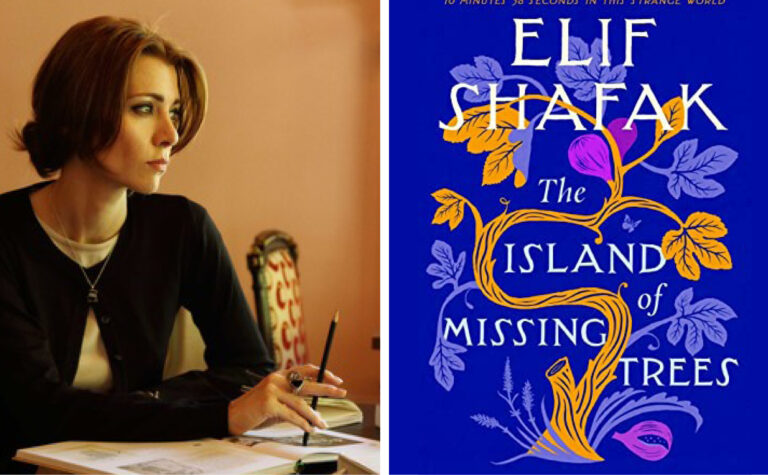Book Review of Elif Shafak’s The Island of Missing Trees

Elif Shafak’s The Island of Missing Trees isn’t usually the type of book that would catch my attention. However, since it was on the Women’s Prize for Fiction 2022 shortlist, I decided to give it a go. And I’m so glad I did. The story revolves around two teenagers: a Greek Cypriot, Kostas, and a Turkish Cypriot, Defne. Their forbidden romance blooms under a fig tree in a taverna, which silently witnesses their secret encounters. Surprisingly, this fig tree narrates a significant portion of the story, which I was initially sceptical about but then loved. The fig tree details how conflict intrudes, leaving behind scars and parting the two young lovers.
The structure of the book is such that we can fast forward and retreat to prior events. The story takes us to London quite early on. Kostas lives with his daughter, named Ada Kazantzakis. Ada confronts her own challenges and trauma and feels a tie to a homeland she’s never visited. Her character is complex and interesting to read about.
The narrative delves into family sagas, unearthing them while emphasizing the quest to discover one’s roots amidst intricate family histories. The Island of Missing Trees offers a narrative where every generation has its tale. Shafak weaves a captivating tapestry of love, identity, and history. The prose is exquisite, and the tree narrative, while unconventional, made me really think about the role of nature in our lives.
There’s no doubt that Shafak’s storytelling skill is top-notch. The tale captivated me, and I wholeheartedly recommend it. The Island of Missing Trees is among the finest books I’ve read in a long time. Currently, I seem to be drawn to stories set against war backgrounds—as I’ve recently read Priscilla Morris’ Black Butterflies, which was also great. While The Island Of Missing Trees is more poetic and perhaps less of a page-turner, it’s the kind that deepens your understanding of life.
Book Club Questions on Elif Shafak’s The Island of Missing Trees:
1. The novel has a complex timeline and multiple narrators. How does this affect your understanding of the characters’ perspectives? Was it effective or confusing for you?
2. Grief is a central theme in The Island of Missing Trees. What are the various forms of grief characters experience? Do you believe, as some say, that one learns to live with grief rather than ever truly moving past it? How does this concept apply to the story’s characters?
3. Delve into these points: Why does Ada scream? How is social media depicted in the story? What future awaits Ada?
4. Were you expecting the twist at the novel’s conclusion? Did you find the ending satisfactory?
5. With which character from The Island of Missing Trees did you resonate the most, and why?
6. Was Dephne’s decision to move to England the right one?
7. The novel hints at alcoholism but doesn’t delve deeply. What drives Dephne to drink? How influential is alcohol in the events that befall her?
8. How would you describe Kosta as a character? Discuss his qualities as a husband and father.
9. The fig tree remarks that humans often see themselves as Earth’s paramount species. Is this a fair assessment? How might various characters in the story respond to such a statement?
Discuss the roles and outcomes of Yusuf and Yiorgos in the novel. Is their storyline adequately explored? Discuss.
Book Club Questions on Elif Shafak’s The Island of Missing Trees (For those who haven't read the book):
1. Aunt Meryam reaches out to the family only after her parents pass away. Is it common to postpone our desires to spare others pain? Can you share personal experiences related to this?
2. Some scientists suggest trauma can be passed through DNA across generations. Could this be argued for The Island of the Missing Trees? What are your thoughts on this concept?
3. Ada feels connected to a homeland she’s never visited. Can you relate? Discuss any personal attachments to your homeland or that of your ancestors.
4. Ask someone in the group to explain the ending of The Island of the Missing Trees. How similar are trees and people?!